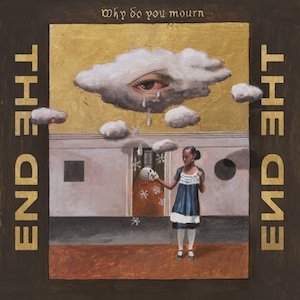Label: Rune Grammofon, 2023
Personnel - Hedvig Mollestad: guitar; Ståle Storløkken: Hammond organ, synths, continuum; Ole Mofjell: drums.
Weejuns is the product of a productive collaboration between Norwegian guitarist Hedvig Mollestad, keyboardist Ståle Storløkken, and drummer Ole Mofjell. In this improvised session, experimental ambient segments provide a platform for bold metal-inclined forays that gradually merge in a control manner. The potential for creative expression is vast, and the music, far from feeling one-dimensional, becomes increasingly audacious as it unfolds. The trio fearlessly embraces atonal elements, allowing their notes and timbres to mingle and intersect. Those familiar with Mollestad's work will notice a different approach, especially due to the instrumentation, while her trademark guitar sound remains consistent.
On “Go at Your Peril”, they cook up a tense, bluesy rock stew with limited motion and explorative activity. Unison arpeggiated lines signal a shift in intensity, announcing the forthcoming improvisation. “Come Monday” takes a more spectral approach, with both dial and vibing electronic sounds, while Mofjell’s drumming reverberates in the background. It’s a well-ventilated experiment, though not as accessible as the subsequent piece, “Hug That Tree”. The latter, assembled from various components, starts with refracted drums responding to codified synth patches and irregular streams of shattering guitar. Multiple frequencies create a psychedelic effect before an odd-metered guitar riff emerges, underpinning sinewy keyboard layouts. The texture undergoes changes, and the roles are reversed when the synth bassline holds the groove for a ferocious guitar improvisation.
“I’ll Give You Twenty One” introduces ominous clouds, reflecting the trio's somber side through persistent drones and languid, sustained tones. Later, cyclic riffery takes on a groovy form. “Stay at Your Peril” immerses the listeners in a state of ambiguity and contemplation before transitioning to a jazzier atmosphere that segues into a seven-beat arpeggiated chord progression. Muscular drumming and the keyboard’s lower notes infuse a rock sensibility by the end. The album concludes with the Satriani-like “Pity the City”, a more emotional and polished piece with an asymmetric time signature {8+9}. The bars are subsequently equipoised for the guitar solo.
Weejuns haunts from the first note to the last but may require time for its alternation of precise and open moves be fully absorbed. While not as explosive and immediate as Ekhidna (2020) and Tempest Revisited (2021), it’s more risk-taking and ruminative. There’s more to delve into, but it already comes with the stamp ‘recommended’.
Favorite Tracks:
03 - Hug That Tree ► 05 - Stay at Your Peril ► 06 - Pity the City














